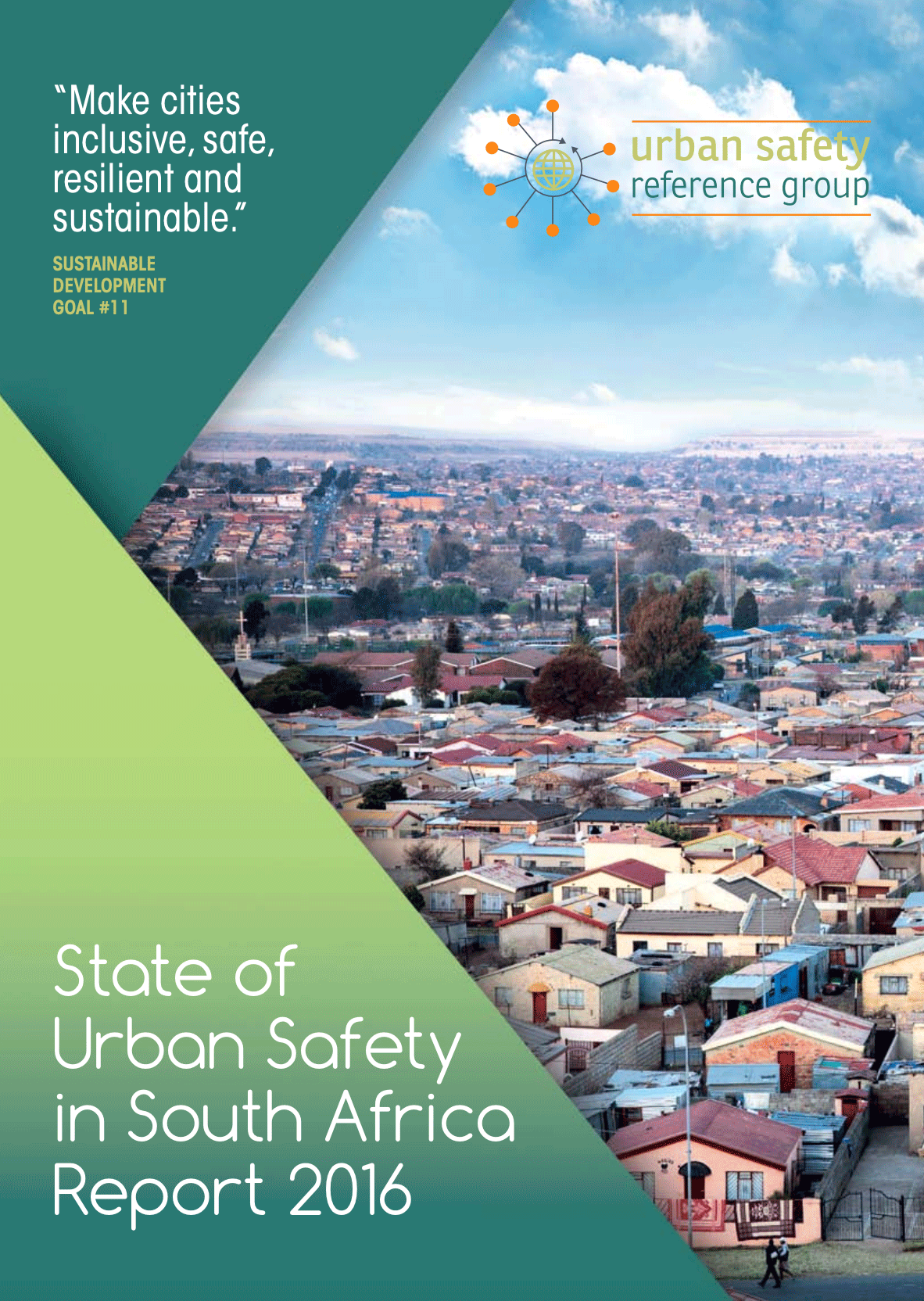State of Urban Safety in South African Cities Report 2016

There is a growing understanding, both globally and in South Africa, that cities or metros need to play clear roles in advancing urban safety. The Urban Safety Reference Group (USRG), with the technical support of the South Africa Cities Network (SACN) and the GIZ Inclusive Violence and Crime Prevention (VCP) programme, has emerged as a key mechanism and platform for coordination and advocacy on urban safety. Cities have distinct safety challenges and tend to experience higher rates of crime, which have implications for their growth, development and quality of life. As a result of poor planning and socioeconomic factors, low-income areas, such as townships and informal settlements, suffer from particularly poor levels of safety.
This uneven spatial distribution of safety affects the overall inclusivity, efficiency and functioning of cities. To address the social, economic, spatial and political drivers of violence and crime will require integrated approaches that go beyond conventional security and policing. Resource allocation is essential to the success of such approaches, and so a greater focus is needed on how the fiscal set-up can and should enable safety. Targeted interventions should be supported by consistent, long-term urban safety policies that are comprehensive, cross-sectoral and set out the competencies, responsibilities and accountability of local governments, as well as other spheres of government and other role-players such as civil society.



Comments